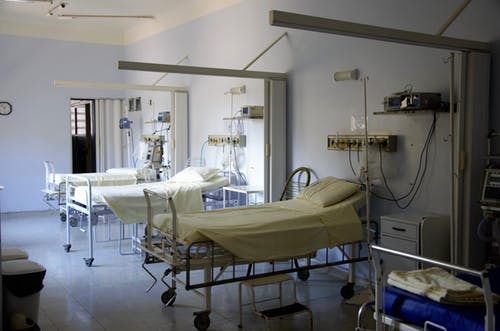Hospital saves millions every day. But it’s also a home ground of germs and infections which affects an innumerable amount of people as those who are admitted there have vulnerable immunity and are on high risks of catching infections and passing around it to others. You are out on a limb just on being a mere visitor to a patient. There are some necessary precautions that one needs to take to avoid catching infections on a hospital trip. Let’s talk about these 5 expert tips that would help you stay safe during a visit to a medical center melbourne.

Prepare your Shield
Patients can be blunt in asking their general physicians, nurses and other attendants to clean their hands and pieces of equipment before using onto them. Hand and medical equipment hygiene can prevent more than 85% of infections. Healthcare-Associated Infections or Nosocomial infections are the ones that patients may get while being treated for another disease. Ask them to use disinfectant wipes to clean your room, your bed railings, the medicine bucket and all the things around you. Get your sheets changed every day and request them to minimize the use of tubes into your body.
Prevention & Control
As a patient, you must not be afraid to be inquisitive. Asking questions from your physician, and understanding your treatment and recovery plan is your right. Keep a close check on your treatment, be attentive towards your drainage tubes and wound dressing, inform the attendant if it needs to be changed. Urinary catheters are common in causing infections, keep them clean and dry. If you’re receiving any fluids from an intravenous catheter, let your caregiver know if a new dressing is required. If you are not conscious enough to keep a check on your treatment, ask your loved one to keep an eye on it and protect you from further infections.
Hand Hygiene
Infections are spread by air and touch, for preventing them wash your hands, especially before and after visiting a patient, use soap or sanitizer having 60% of alcohol in it to avoid catching germs from the patients and the surroundings. Avoid touching your face while being in the hospital as germs can get in contact with your nose and mouth thus causing the infection. People with upper respiratory infections cause airborne infection, prefer to use a mask and avoid getting in contact with people who suffer from coughing or sneezing.
Precautions for Visitors
Stay at home if you are not well. Seriously, the patient and the healthcare staff cannot afford to have and survive additional infections. There is no need to visit the sick as they are highly vulnerable to infections. For you, it could be a harmless flu, cough, diarrhea or a small rash but for them, it could be something they can’t fight down as their immune system is frail and weak. Apologize and send a get well soon card instead.
Stay Safe
Cleanliness is the key to control the spread of infections in hospitals. But there are instances when mere tidiness is not enough as in the case of MRSA caused by a superbug, a special kind of bacteria called Staphylococcus aureus that has exceptional resistance to even strong antibiotics. Then the need for isolation rooms and surgical centers arises. The bottom line is to choose a hospital for you that has low infection rates and practices strict precautions for annihilate infections.

